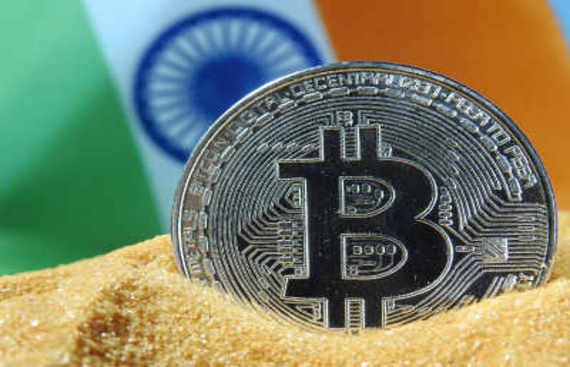India's antagonism on crypto industry

In recent years, private digital currencies or virtual currencies or cryptocurrencies have been in the spotlight due to their dramatic rise and fall in prices, views of specific high-net-worth individuals, and actions taken by various governments. In addition, the temptation of high returns has made several Indians invest in cryptocurrencies such as bitcoin, ethereum and dogecoin.
In contrast, the Reserve Bank of India (RBI) and India's crypto industry have an unequal equation between them, which can best be antagonistic. Meanwhile, the central bank involves India's capability to absorb fiscal shocks; it has often highlighted the drawbacks of using cryptocurrencies. On the other hand, though, the crypto industry has acclaimed RBI's response is hyperbolic. Usually, India's attitude towards cryptocurrency has been belligerent, and it leads to constitute a high-level intermediate committee to turn up on issues associated to it. However, as per a former story of 2019, the panel had recommended an absolute ban on private cryptocurrencies in India, which increased chaos among crypto investors and put them on the wrong side of the law.
Brought out by RBI, the attitude has led banks to distance themselves from the crypto community insistently. In May, HDFC Bank customers received a rather assertive email from the bank to warn them against virtual currency transactions. The email mentioned an RBI circular published on 6 April 2018 that instructed all businesses it regulates to conclude any involvement with cryptocurrencies. State Bank of India has also considered a tough stance on cryptos. Several large banks, such as ICICI Bank, have stepped up to block services to crypto exchanges. Many complaints of difficulties with getting bank deposits and transfers have reported.
Investor despairs: As it might be expected, cautionary emails from the bank had incited a ruckus among clients and crypto investors, with large numbers of them taking to social media to communicate their dissatisfaction. The discontent and anger can be ascribed to their fear of losing on the high profits offered by crypto trading. In addition, a study by Bloomberg Intelligence displayed past of the year, Bitcoin's recent slide alleged this crypto's technical outlook was strong, and its price could surge to $400,000 in 2021.
The government's temperament brings up whether all authorities in India are attentive to digital currencies. It's not. The Supreme Court knocked out the 2018 anti-crypto circular of RBI. In a March 2020 ruling, it was inspected that RBI had unsuccessful to present sufficient proof and detailed instances of losses arising from crypto transactions that might justify such a drastic measure as an in effect ban on banks' participation with cryptos. Hence, it can be observed that some pressure is being exerted on Indian authorities to permit crypto services.
Crypto endorsers: The news of Tesla founder Elon Musk as an ardent endorser of cryptos is tricky. Though many people might consider him a crypto guru and others view his pretences of operation as a reason for significant volatility in the market.
The news is one of the reasons for the unenthusiastic attitude of Indian authorities towards crypto. Their prices are incredibly unpredictable; they might not be running rationally, and these stances the risk of a fiscal bubble destined to burst. The pandemic has viewed crypto prices as prosperous, but there's no certainty if this will last. The most significant concern, possibly, is the lack of clarity of use that cryptos award clients, which has driven them to be viewed as safe transaction apparatuses for cybercriminals.
However, it is indistinct if cryptos should take care of authorities' failure in finding culprits of online violations. Everyday misfortunes of income are likewise a significant challenge for the government. Since the crypto market is free, it is practically challenging to follow crypto payments for any duty liabilities that may apply.
Internationally, cryptocurrency has been accepted and proceeding towards its growth. Crypto-friendly Miami, US, played host lately to a universal crypto conclave, and El Salvador has become the very first country in the world to permit Bitcoin legal-tender status. Demand to overturn the policy coin in support of cryptos seems to be emerging. Nevertheless, given the irrational behaviour associated with the market, and statements like "Crypto isn't the real economy" by Elon Musk and indulges by others—former US President Donald Trump, for example, dismissed cryptos as a travesty—both sides of the coin seem evenly balanced at this moment.
While nations like South Korea are implementing legislative frameworks to legalize cryptocurrencies and exchanges, India believes in enforcing a successful prohibition on 'private' digital assets and currencies. The Indian government has demonstrated that it will table in Parliament the Cryptocurrency and Regulation of Official Digital Currency Bill, 2021, which will successfully boycott private cryptocurrencies and permit an option through central bank digital currency (CBDC).
India's attempt to diminish the national cryptocurrency sphere to a state-backed CBDC under RBI does not seem like a surprise; however, its viability is another matter. The Achilles' impact point of this approach is the hallucination that it is possible to prohibit cryptocurrencies. Simultaneously, the global experience so far advises that a blanket ban would be unproductive, and it may be wiser to legalize them to relieve systemic risks. Subsequently, a discussion on the concern of all stakeholders seems to be an actual event to happen. Henceforth, crypto investors and traders risk getting pulled into litigation dilemma, which could be a reason of much unease for the budding segment.
If Parliament passes India's cryptocurrency bill in its existing form, it will assist RBI's objective. Nevertheless, this would be a fight triumph and need not demonstrate who will ultimately win the crypto war.

